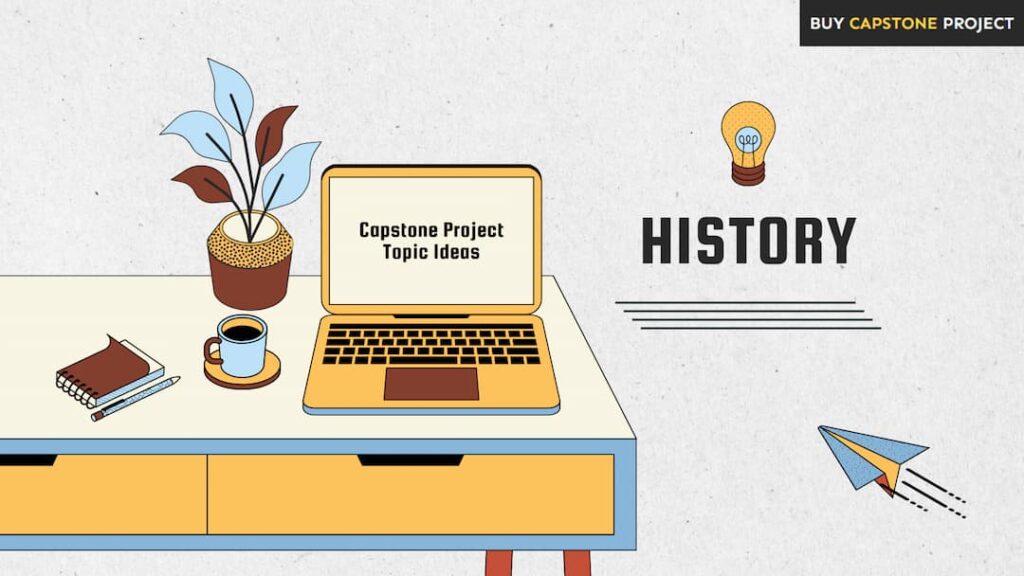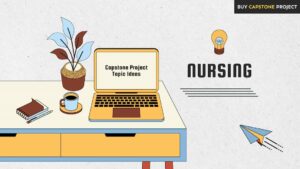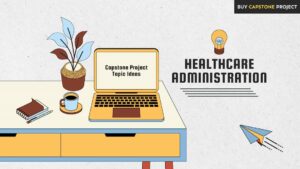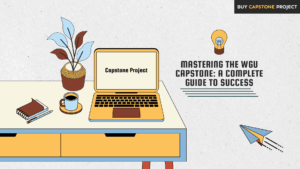Looking for some amazing history capstone project ideas?
Congratulations, you are at the right place. In this blog, we will cover multiple history capstone project ideas in detail.
The Basics
A history capstone project serves as the ultimate research task, which enables students to conduct an in-depth study of historical subjects. The project requires students to research historical events, personalities, and movements, using trustworthy sources to demonstrate their current significance.
The project enables students to develop research skills, analytical skills, and writing proficiency while exploring how history offers insights into the present.
The Best 20 History Capstone Project Ideas
1. The Impact of the Cold War on Global Politics
Research Question 1:
How did the rivalry between superpowers reshape political alliances in Europe?
Overview: Students can compare primary source documents and diplomatic correspondence to trace changes in alliances.
Research Question 2:
What role did propaganda play in influencing public opinion during the Cold War?
Overview: Research may involve analyzing media artifacts and government publications from the era.
Research Question 3:
How did the Cold War affect decolonization efforts in Asia and Africa?
Overview: Evaluate historical records and scholarly articles to determine how superpower competition influenced independence movements.
2. Colonial Legacies and Postcolonial Societies
Research Question 1:
How did colonial administrative systems shape the economic development of former colonies?
Overview: Use economic data, archival records, and case studies to examine long-term economic trends.
Research Question 2:
What social and cultural impacts did colonial policies have on indigenous communities?
Overview: Students can review ethnographic studies and historical texts to document changes in social structures.
Research Question 3:
How have postcolonial governments addressed historical inequalities inherited from colonial rule?
Overview: Analyze policy reforms and historical narratives to evaluate approaches in different regions.
3. Women’s Roles in Historical Movements
Research Question 1:
What contributions did women make to major social and political revolutions?
Overview: Explore biographies, letters, and archival materials to highlight individual and collective efforts.
Research Question 2:
How did gender expectations influence women’s participation in public life during key historical periods?
Overview: Compare cultural norms and legal restrictions using primary sources and scholarly research.
Research Question 3:
What changes occurred in women’s rights movements during the 20th century across different regions?
Overview: Investigate legislative changes, activist writings, and historical records to trace progress and setbacks.
4. Revolutions and Social Change
Research Question 1:
What were the underlying causes of revolutionary movements in the 18th and 19th centuries?
Overview: Analyze socio-economic data, political writings, and historical accounts to identify common factors.
Research Question 2:
How did revolutionary ideas spread across national borders during this period?
Overview: Examine trade routes, communication methods, and the influence of printed materials to assess the diffusion of ideas.
Research Question 3:
What were the long-term social impacts of major revolutions on urban and rural populations?
Overview: Compare census data, personal narratives, and contemporary accounts to understand lasting changes in society.
5. Technological Advancements and Historical Conflicts
Research Question 1:
How did new military technologies alter the strategies used in major wars?
Overview: Review military records and technical reports to compare tactics before and after technological innovations.
Research Question 2:
What was the role of communication technologies in shaping wartime decision-making?
Overview: Analyze historical communication logs, maps, and firsthand accounts from military personnel.
Research Question 3:
How did technological progress influence the outcome of conflicts during the industrial era?
Overview: Compare case studies of key battles or wars, using quantitative and qualitative data to determine influence.
Yo, history buffs, if those capstone project topics are tripping you up, we’ve got the hookup you need. Check out our custom capstone project writing service and turn your ideas into straight-up A+ content!
6. The Evolution of Nationalism in the 19th and 20th Centuries
Research Question 1:
How did nationalist ideas contribute to the unification of countries in Europe?
Overview: Study historical documents, speeches, and political movements to trace the emergence and impact of nationalism.
Research Question 2:
What factors led to the fragmentation of multinational empires during this period?
Overview: Analyze treaties, rebel accounts, and governmental records to examine causes of disintegration.
Research Question 3:
How did nationalism influence cultural expressions such as literature and art?
Overview: Compare cultural works from various nations and analyze the role of national identity in artistic creation.
7. Civil Rights Movements and Their Global Impact
Research Question 1:
What strategies were used by civil rights leaders to gain support and drive change?
Overview: Evaluate speeches, protest records, and media reports to understand effective advocacy methods.
Research Question 2:
How did international perspectives shape local civil rights movements?
Overview: Compare historical documents from multiple countries to identify cross-cultural influences.
Research Question 3:
What role did legal reforms play in advancing civil rights over time?
Overview: Analyze legislative records and judicial opinions to assess the effectiveness of legal changes in protecting rights.
8. The History of Migration and Diaspora Communities
Research Question 1:
What economic factors motivated large-scale migration during major historical periods?
Overview: Use census data, economic reports, and personal narratives to understand push and pull factors.
Research Question 2:
How did migration influence the cultural identity of diaspora communities?
Overview: Research cultural artifacts, community records, and interviews to examine the evolution of identity.
Research Question 3:
What challenges did migrants face in integrating into new societies?
Overview: Analyze social policies, newspaper articles, and firsthand accounts to document barriers and responses.
9. The Role of Religion in Shaping Historical Events
Research Question 1:
How did religious movements influence political decisions during critical periods in history?
Overview: Examine religious texts, governmental records, and correspondence to determine the interaction between faith and policy.
Research Question 2:
What impact did religious reforms have on social structures in Europe during the Reformation?
Overview: Compare case studies and analyze changes in church-state relations using primary sources.
Research Question 3:
How have religious conflicts shaped the borders and identities of modern nations?
Overview: Review historical treaties, conflict records, and scholarly analyses to assess long-term consequences.
10. Environmental History and Its Effects on Society
Research Question 1:
How have historical environmental changes influenced the development of human settlements?
Overview: Analyze archaeological records, maps, and climate data to identify patterns of settlement shifts.
Research Question 2:
What role did resource scarcity play in historical conflicts?
Overview: Examine case studies of wars or disputes over resources, using economic and environmental records.
Research Question 3:
How did industrialization alter the relationship between humans and their natural surroundings?
Overview: Compare environmental reports, photographs, and urban planning documents to assess impact on local communities.
11. Economic History: The Rise and Fall of Empires
Research Question 1:
What economic policies contributed to the rise of ancient empires?
Overview: Evaluate historical trade records, taxation policies, and administrative documents from early civilizations.
Research Question 2:
How did shifts in economic power lead to the decline of major empires?
Overview: Analyze historical financial data and economic writings to understand the factors that weakened empires over time.
Research Question 3:
What lessons can modern economies learn from historical empire management?
Overview: Compare past economic strategies with contemporary policies to identify patterns and warnings.
12. The History of Education and Its Social Impacts
Research Question 1:
How did educational reforms in the 19th century influence social mobility?
Overview: Study educational policy documents, enrollment statistics, and personal accounts to trace changes in opportunities.
Research Question 2:
What role did literacy campaigns play in transforming societies during major historical periods?
Overview: Analyze campaign records, government reports, and historical surveys to assess the impact of increased literacy.
Research Question 3:
How have shifts in educational methods reflected broader societal changes?
Overview: Compare curricula, teaching methods, and educational philosophies from different eras to track social evolution.
13. The Influence of Art and Culture on Political Movements
Research Question 1:
How did visual art contribute to political messaging during revolutionary periods?
Overview: Examine paintings, posters, and political cartoons alongside historical accounts to assess their persuasive power.
Research Question 2:
What role did music and literature play in uniting communities during times of change?
Overview: Analyze song lyrics, literary works, and historical narratives to understand cultural unity in political movements.
Research Question 3:
How have cultural festivals and public performances reflected and shaped national identity?
Overview: Research records of public events, government archives, and cultural analyses to evaluate their societal influence.
14. Conflict and Peace: The History of Wars and Treaties
Research Question 1:
What factors were most influential in bringing about peace agreements after major wars?
Overview: Study diplomatic correspondence, treaty documents, and negotiation records to identify key elements of peace.
Research Question 2:
How did wartime experiences shape the development of international law?
Overview: Review legal documents, war records, and international court cases to trace the evolution of legal standards.
Research Question 3:
What lessons can be learned from historical treaties that failed to maintain lasting peace?
Overview: Analyze case studies of treaties, their enforcement, and subsequent conflicts to identify pitfalls and recommendations.
15. Historical Memory and National Identity
Research Question 1:
How do national monuments and memorials shape public perceptions of history?
Overview: Research the history and design of monuments and conduct surveys or interviews to capture public sentiment.
Research Question 2:
What role do school curricula play in forming national identity?
Overview: Analyze textbooks, educational standards, and historical debates to examine how identity is constructed through education.
Research Question 3:
How do commemorative events influence collective memory of past conflicts?
Overview: Study event records, media coverage, and participant interviews to assess the impact on public remembrance.
16. Immigration Policies and Their Historical Context
Research Question 1:
What were the driving factors behind immigration policy changes in major industrial nations?
Overview: Evaluate government records, legislative debates, and economic data to understand policy shifts over time.
Research Question 2:
How have immigration policies affected the demographic composition of societies?
Overview: Use census data and migration studies to document changes and assess their long-term impact.
Research Question 3:
What parallels exist between past and present approaches to immigration regulation?
Overview: Compare historical documents with current policy analyses to identify similarities and differences in regulatory approaches.
17. Public History and the Use of Digital Media
Research Question 1:
How has digital technology changed the way historical information is shared with the public?
Overview: Examine online archives, virtual museum exhibits, and social media campaigns to evaluate the influence of digital tools.
Research Question 2:
What challenges arise in presenting complex historical events through digital platforms?
Overview: Analyze case studies of digital history projects and gather user feedback to assess content accuracy and accessibility.
Research Question 3:
How can digital media enhance public engagement with underrepresented historical narratives?
Overview: Review digital projects focused on marginalized voices and measure audience engagement through online analytics and surveys.
18. The Role of Journalism in Documenting History
Research Question 1:
How did journalism influence public opinion during major historical events?
Overview: Compare newspaper archives, broadcast records, and firsthand accounts to assess journalism’s role in shaping views.
Research Question 2:
What ethical challenges have journalists faced when reporting on conflicts and crises?
Overview: Review journalistic codes of conduct, case studies, and interviews to explore ethical considerations.
Research Question 3:
How have changes in media technology impacted the documentation of history over time?
Overview: Investigate transitions from print to digital media and analyze how these changes affected historical record keeping.
19. The History of Healthcare and Public Health Systems
Research Question 1:
What factors contributed to the development of modern public health systems?
Overview: Study historical records, government reports, and health statistics to trace the evolution of public health policies.
Research Question 2:
How did major health crises shape societal responses and healthcare reforms?
Overview: Examine case studies of pandemics or epidemics alongside governmental and public responses documented in historical records.
Research Question 3:
What impact did medical breakthroughs have on life expectancy and quality of life?
Overview: Use statistical data and historical analyses to correlate advances in medicine with improvements in public health.
20. Digital History: Archiving and Presenting the Past
Research Question 1:
How have digital archives transformed the accessibility of historical documents?
Overview: Evaluate the development and impact of digital repositories by comparing access statistics and user experiences.
Research Question 2:
What challenges do historians face when preserving digital records for future research?
Overview: Review technical reports and scholarly discussions on digital preservation to identify issues and propose solutions.
Research Question 3:
How can interactive digital exhibits enhance the study of historical events?
Overview: Analyze case studies of digital exhibits and collect audience feedback to assess their educational effectiveness.
Students can combine primary and secondary sources, analyze quantitative and qualitative data, and review scholarly literature to build well-supported arguments and present clear conclusions.
Conclusion:
The history capstone project enables students to analyze historical events using evidence while connecting their findings to present-day consequences. Analyzing primary and secondary sources helps students develop critical thinking, research, and analytical skills that they will use outside of school.
The project provides students with a better understanding of specific historical subjects while showing them how history shapes social, cultural, and political systems. To ensure maximum learning, one needs to have very good history capstone project ideas in mind.
FAQs Related to History Capstone Project Ideas
Here are some useful FAQs related to history capstone project ideas.
What is a history capstone?
A history capstone is a final research project where students investigate a historical topic and present their findings.
Which topic is best for a history project?
The best topic is one that interests you, has enough sources, and allows for critical analysis of historical events or figures.
What are some good capstone topics?
Good capstone topics include social movements, revolutions, influential leaders, wars, or cultural changes.
What are some good history topics?
Strong history topics include the Industrial Revolution, the Civil Rights Movement, World War II, ancient civilizations, and the history of medicine.







